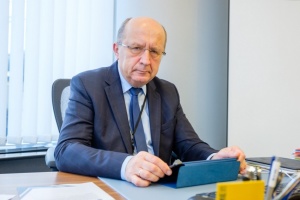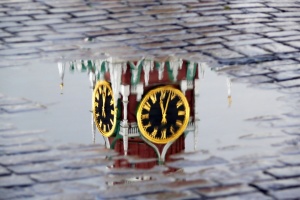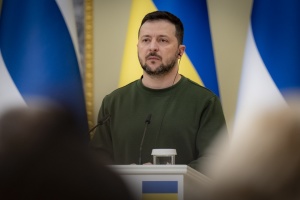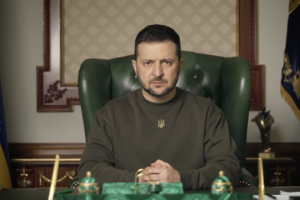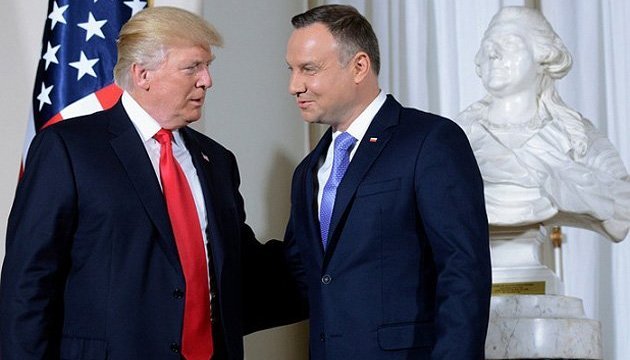
Ukraine still needs to choose between U.S. and EU
There have been a lot of media reports about a meeting between Trump and Putin and comments about it, but today we have another echo. The White House said that the U.S. presidential administration supports a bill on new economic sanctions against Iran and Russia, and asks not to restrict the president's right to strengthen or weaken sanctions without the consent of the Congress. Moscow's Izvestiya newspaper, referring to an anonymous source from the Russian Foreign Ministry, wrote that Russia could expel about 30 U.S. diplomats and seize U.S. property (a response to similar steps taken by former U.S. President Barack Obama on December 30 last year). Former NATO Secretary General and Ukrainian presidential advisor Anders Fogh Rasmussen also spoke out about Russia: "We want to continue the Minsk process, but until we raise the costs to Putin for failing to deliver, I am not convinced he will implement Minsk or respect international law... We should show greater strength and resolve to demand Putin to finally come good on his promises to end the fighting in eastern Ukraine."
We draw attention to these news reports not to once again emphasize the "success" for Russians from a meeting between Trump and Putin in Hamburg (just in this sense, there is no sensation here). It's about more interesting things.
The apparent growing pressure from the West, and, first and foremost, from the United States, on Russia should cause a further escalation of relations between the United States and some EU members. In fact, these are Germany and those countries that are oriented towards Berlin in their foreign policy. The deep foundation of geopolitical rivalry between the United States and Europe is a long history; in this particular case, we are faced with the conflict of interests between Germany and the United States on how to respond to Russia's aggression against Ukraine. The difference between these interests is that Germany does not want to completely lose such an economically beneficial partner as Russia. Russia for Germany means cheap gas, a customer of products of the German industry, and a certain counterweight to the U.S. That is why Berlin is not interested in sanctions against Moscow being too tough, so Angela Merkel has strongly criticized a bill by U.S. lawmakers to strengthen anti-Russian sanctions.
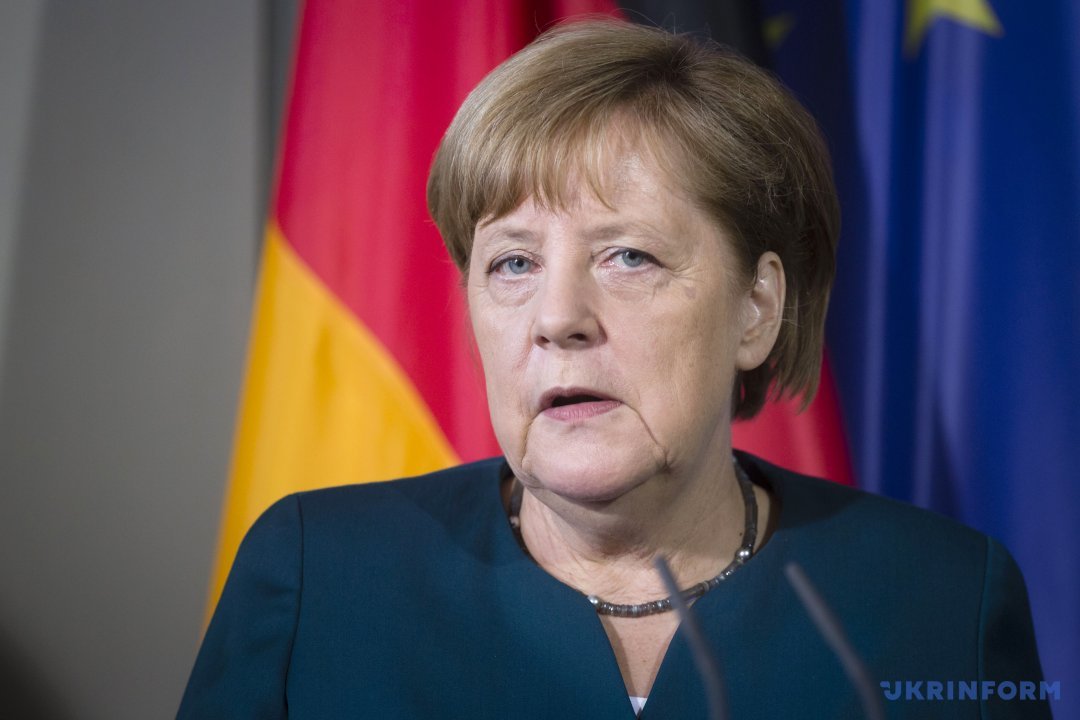
However, the degree of opposition between NATO allies on Russia should not be overestimated, as the Kremlin hopes. Germany can be very unhappy with the actions of the United States, but it will not go into tough confrontation with them. Europe, in this (and not only in this) issue, is not united at all in support for the EU leader. Some EU member states, especially Poland and some other countries from Eastern and Central Europe, have already decided that they have chosen a close political and economic union with the U.S. as a priority in their foreign policy. This is already a geopolitical fact, a demonstration of which took place in Warsaw with the participation of Donald Trump ahead of the G20 summit. Germany is not going to "fight" immediately on several fronts - both with Russia, the United States, and with part of the EU. Moreover, a close and open alliance with Russia against the U.S. is in principle impossible for Berlin, since the trust in such an "ally" as Russia is zero, and the Germans are well aware of it.
Finally, Germany itself is not united in its attitude to Russia. Yes, it has powerful political and business circles who, for one reason or another, are ready to condemn in words the aggression of Russia, and in fact they continue to deal with it (for example, the story of Siemens turbines for Crimean power plants). They are stubbornly persuading to support the construction of the Nord Stream 2 pipeline, against which some other EU countries are no less stubbornly protesting. However, not less powerful are those German leaders and politicians who understand that a strategic alliance is possible only with a mentally and civilizationally close U.S., rather than Russia. In a word, it will not be boring to observe this hidden struggle.
Ukraine should have stayed away from all these disputes between our foreign allied partners, but it is unlikely that this will happen. When it comes to the active obligation of Russia to implement the "Minsk agreements" (and this is about to happen), Ukraine will have to choose which kind of pressure to support - American or German, in other words – which Ukrainian concessions (a "special status," "federalization," etc.) can be accepted by Russia. "Going between the droplets," that is between Washington and Berlin (Brussels), will not succeed, and, most importantly, such a policy for Ukraine is unnecessary and dangerous. We must take care of the maximum protection of our interests, which concerns the unconditional release of the Ukrainian lands seized by Russia. And this means that Ukraine must unambiguously choose the strongest alliance with the United States, despite almost guaranteed dissatisfaction from some of our European partners, because only such an alliance will return what we had to us. Is the Ukrainian government capable and viable of such a strong position?

